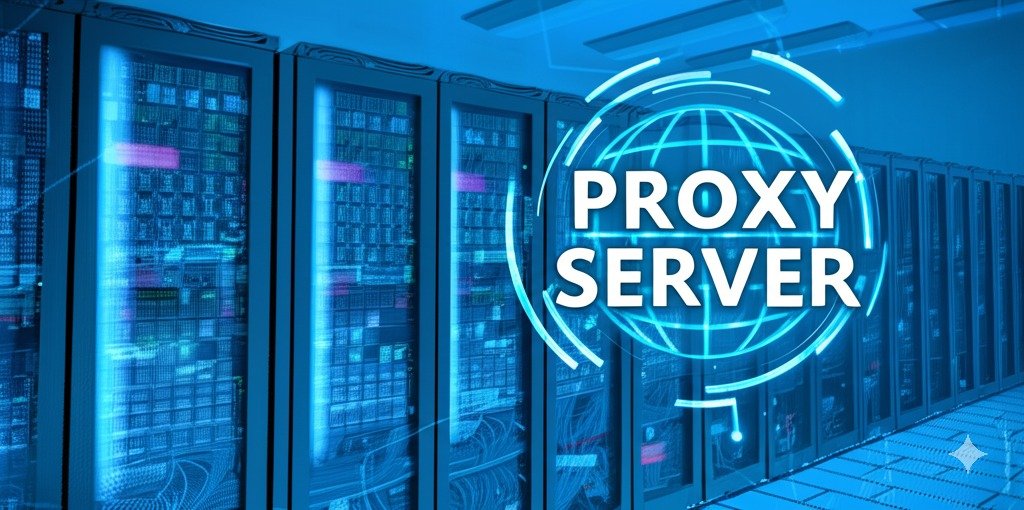I’ve been using proxy servers for years, and I often get asked: “Does a proxy server slow down the internet?” It’s a great question, especially for those who want to know if proxies are worth the extra hassle. After all, the idea of speeding up browsing by rerouting your traffic might sound a bit counterintuitive, right? Let’s break it down so you can make an informed decision about whether proxies will help or hurt your internet speed.
Key Points:
- Proxies may slow down your connection depending on their quality and location.
- High-quality proxies can speed up your browsing by caching data.
- Proxy servers can help reduce lag in gaming or optimize routes.
What is a Proxy Server?
Before diving into the details of whether a proxy server slows down internet speed, let’s make sure we understand what a proxy actually is. Think of a proxy server as a middleman between you and the internet. Instead of your device connecting directly to websites, your traffic is routed through the proxy server first. It hides your real IP address and can also be used to access region-locked content or boost privacy.
For example, when I use a proxy for streaming shows, it can make a world of difference in accessing content that isn’t available in my country. The proxy server acts as my “ticket” to bypass geographic restrictions. But, does this process slow down my connection? Let’s see!
Factors That Affect Proxy Server Speed
There’s no one-size-fits-all answer. Whether a proxy server slows down your internet depends on several factors. Here are the key elements to consider:
Proxy Server Location
One of the biggest factors affecting proxy speed is its location. If the proxy server is located far away from you, the time it takes for data to travel back and forth increases, which results in higher latency. This delay can slow down your internet connection.
Imagine this: You’re in the US, and your proxy server is based in Asia. Every time you make a request to load a page, it has to travel halfway across the world. Naturally, this takes longer, and you’ll feel the slow speed.
Proxy Server Quality
Not all proxies are created equal. The quality of the proxy can make or break your connection speed. High-quality, paid proxies tend to have better infrastructure, fewer users sharing bandwidth, and are often faster. Free proxies, on the other hand, can be slow and unreliable because they’re overloaded with users, often have limited bandwidth, and may not offer the same level of security or performance.
In my experience, using a free proxy might work well for light browsing, but when I try to stream videos or play games, the slowdowns become noticeable. For smoother experiences, I’d recommend investing in a high-quality proxy.
Network Conditions
The speed of your own internet connection plays a role too. Even if your proxy server is fast, your connection to the proxy can bottleneck the whole process. If your internet speed isn’t up to par, you’ll experience delays regardless of the proxy quality.
For example, I once had a 2 Mbps connection and tried using a proxy server. No surprise, browsing felt painfully slow. But when I upgraded my plan to a 20 Mbps connection, everything sped up, even with the proxy in place.
Encryption and Security Measures
Many proxies, especially VPNs, encrypt your data for security. While this is great for privacy, encryption adds a layer of overhead, which can reduce speeds. Think of it as wrapping your data in several layers of bubble wrap. Sure, it’s safe, but it takes a bit longer to get from point A to point B.
If you prioritize security over speed, using a proxy with encryption might make sense, but you’ll experience slower speeds in exchange for that extra protection.
When Does a Proxy Server Improve Internet Speed?
It’s not all bad news for proxies. There are scenarios where they can improve your internet speed.
Caching for Faster Load Times
Some high-quality proxies store or cache frequently accessed content. This means that if you visit the same websites repeatedly, the proxy server doesn’t have to request data from the website every time. Instead, it fetches the cached data, which loads much faster.
I’ve noticed this benefit when using proxies for shopping. Every time I log onto a site, the product pages load instantly because the proxy has stored that information from my previous visits. It’s a huge time-saver!
Content Delivery Networks (CDNs)
Many proxies are part of a Content Delivery Network (CDN). These networks distribute content across multiple servers located around the world. So, when you make a request, the proxy connects you to the nearest server, reducing latency and improving speed.
For example, when I access websites that use CDNs, such as news sites or video platforms, the page loads almost instantly. It’s all about getting the data from the nearest available server, which significantly boosts browsing speed.
Gaming and Data Routing Optimization
When I’m gaming, latency (or ping) is crucial. A proxy server can optimize the routing of my data, reducing ping times and improving my overall gaming experience. By selecting a proxy server close to the game server, you can minimize delays and get a smoother gameplay experience.
In fact, I’ve used proxies for gaming before, and the difference in latency is noticeable. Instead of lagging behind, I’m able to respond faster and enjoy a more seamless experience.
Bypassing Geo-Restrictions
Many people use proxies to bypass geo-restrictions, especially when it comes to streaming content. For instance, if a movie or TV show is only available in another country, using a proxy server in that region can allow you to access the content as if you were in that location. This can also improve speed, especially when the proxy is in a country with better internet infrastructure.
Common Misconceptions About Proxy Servers and Internet Speed
There are a lot of misconceptions out there about proxies and speed. Let me clear some of them up:
Do Proxies Always Slow Down Internet?
It’s easy to assume that proxies always slow down the internet. While this is often true with low-quality, free proxies, it’s not the case for all proxies. The quality of the proxy matters a lot. If you use a high-quality proxy server, you can actually see speed improvements through caching and optimized routing.
Free vs. Paid Proxies
Here’s a quick tip from personal experience: free proxies are almost always slower. The servers are crowded, there’s often no guarantee of quality, and they tend to have limited bandwidth. Paid proxies, on the other hand, are faster, more reliable, and come with customer support. If you care about your online experience, I suggest going with a paid option.
Proxy Server Myths and Realities
There’s a myth that all proxies slow down your internet. In reality, the impact on speed depends on the proxy’s location, quality, and how well it’s configured. If you choose wisely, you can improve your browsing experience.
How to Choose a Proxy Server for Better Internet Speed
If you want to maximize your internet speed while using a proxy, here’s what to look for:
Selecting a High-Quality Proxy
Look for a proxy service that offers fast servers, minimal downtime, and support for high-traffic usage. Also, consider the security features provided by the proxy.
Geographical Considerations
Choose a proxy server located closer to you. The shorter the distance the data needs to travel, the better your speeds will be.
Optimizing Internet Speed with Proxies
If you plan to use a proxy regularly, make sure it’s optimized for speed. This might mean choosing a paid proxy with better infrastructure or selecting one connected to a CDN.

Conclusion
So, does a proxy server slow down your internet? It can, but it doesn’t always have to. The right proxy, one that is high-quality and well-optimized, can improve your browsing speed. Whether it’s through caching, CDNs, or optimized data routing, proxies can offer real benefits. The key is to avoid low-quality, overloaded proxies and opt for reliable, high-performance services.
FAQs
- Does a proxy server always slow down the internet?
No, the speed impact depends on the proxy’s quality, location, and your own internet speed. - Can a proxy speed up my internet?
Yes, a high-quality proxy can improve speed by caching data and reducing latency, especially with CDNs. - Are free proxies slower than paid ones?
Yes, free proxies tend to be slower due to high traffic and limited infrastructure. - Does a proxy reduce latency in online games?
Yes, proxies can reduce ping by optimizing routing and connecting to servers closer to the game server. - Will using a proxy affect streaming speeds?
It depends. A good proxy can improve speeds for streaming by bypassing geo-restrictions and optimizing routes. - Is a proxy useful for security?
Yes, proxies can enhance security by masking your IP address and encrypting data. - How do I choose a proxy server for better speed?
Look for a high-quality proxy with fast servers, minimal downtime, and good geographical positioning.
Find out if a proxy server slows down your internet. Learn how proxies affect speed and when they can improve your browsing experience.

i want to write a author box bio, my site based on ppmcalculator.com. provide me a short Biographical Info
2/2



